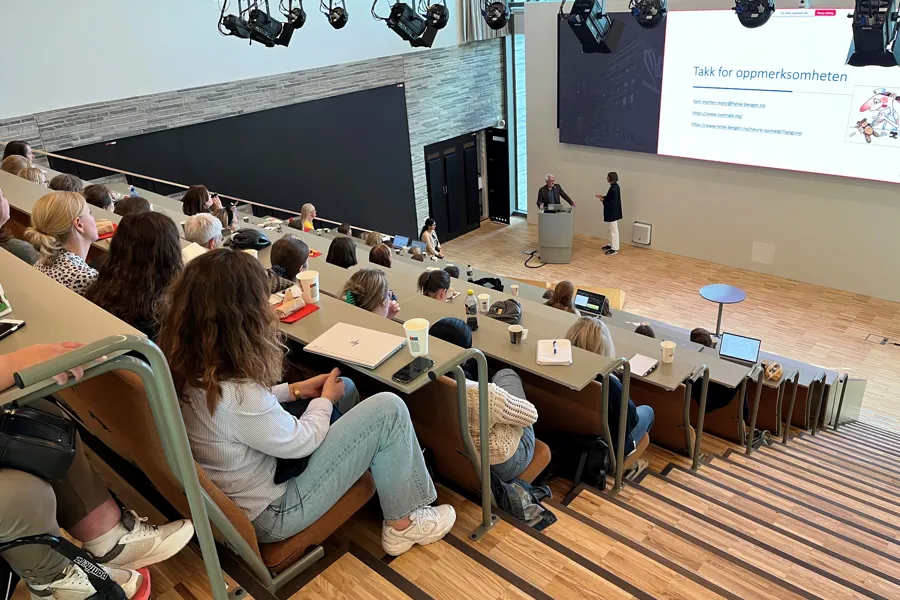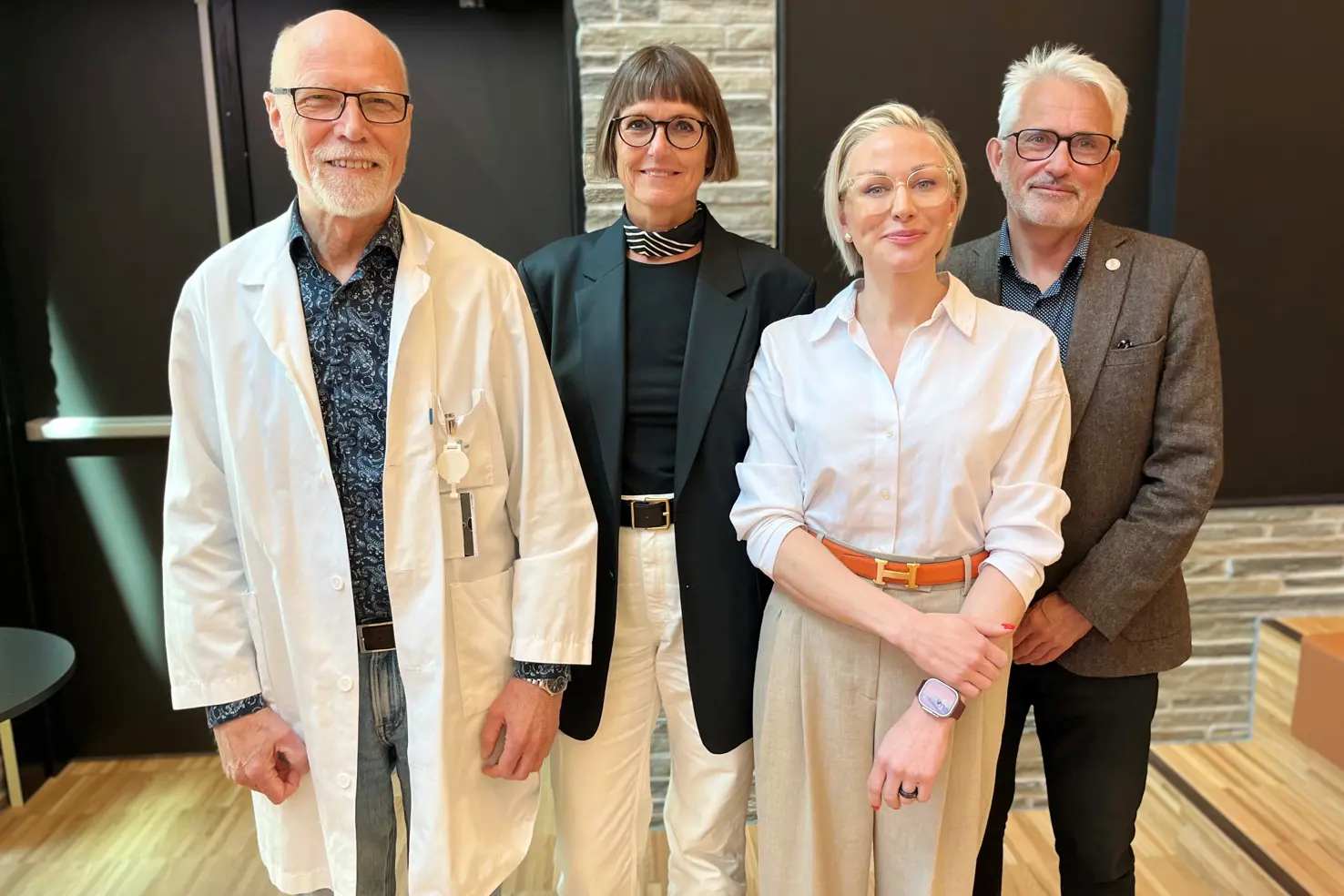Clinical Trials Day-gathering in Bergen
Clinical trials in proton therapy, infectious diseases, and multiple sclerosis were highlighted when NorCRIN (Norwegian Clinical Research Infrastructure Network) marked Clinical Trials Day at Haukeland University Hospital.

Full auditorium and exciting program
On Thursday patients, clinicians, and other stakeholders gathered in the new auditorium in Glassblokkene – as well as on Teams for a comprehensive program. Attendees learned about the status of the revised action plan for clinical trials, including ongoing studies in infectious diseases and proton therapy, pandemic preparedness, and how clinicians integrate clinical trials into a busy daily routine.
NorCRIN aim was to highlight the vital role of research for the development of effective treatment by showcasing current clinical activities in Norway.
The pharmaceutical industry was not represented that day. NorCRINs parent organization, ECRIN (European Clinical Research Infrastructure Network), however, marked Clinical Trials Day with a program that included patients, authorities, clinicians, and industry. Novartis, GSK, and Roche were represented with presentations.
Honoring the First Clinical Trial
Clinical Trials Day is celebrated worldwide on May 20th each year to honor the Scottish military physician James Lind (1716-1794), who in 1747 conducted what is often recognized as the first controlled clinical trial. Aboard a naval ship, Lind tested the effect of citrus juice on sailors with scurvy, demonstrating that oranges and lemons could prevent the disease.
The meeting in Bergen was chaired by Medical Director at Haukeland University Hospital, Marta Ebbing. Among the speakers were Marianne van der Wel from the Ministry of Health and Care Services, Professor Nina Langeland from the University of Bergen, Senior Consultant and Researcher Olav Mella from Haukeland, and Kjell Morten Myhr, head of NorTrials Brain Health.

Photo: Eline Feiring
Structured cancer journal
Additionally, Tine Hunt from Helse Vest IKT talked about how a structured cancer journal can be used in clinical trials. A structured cancer journal is a way to organize and store information about cancer patients more systematically and searchably, which can make it easier to analyze data, report, and share information among different healthcare actors. Such data can, for example, be used to identify patients who may be eligible for proton therapy.
Norway leads EU project
CoMeCT (Coordination Mechanism for Cohorts and Trials) is an EU-funded project (Horizon Europe program) aimed at coordinating and harmonizing clinical research on infectious diseases with epidemic potential in Europe by bringing together various stakeholders. The project is led by the Norwegian Institute of Public Health (FHI), with Professor Nina Langeland as one of two project leaders. Seven partners are also involved: INSERM, Ecraid, ECRIN, NIPH, PENTA, UNIVR, and the University of Cologne. In her presentation, Professor Langeland emphasized the importance of cross-sector collaboration, a national network of all Norwegian infection departments, as preparation for the next pandemic.
Proton therapy versus radiotherapy
Bergen is home to one of Norway’s two proton centers.The proton building at Haukeland is expected to begin treating patients in 2025. The other proton center is being built at Radium Hospital in Oslo. Olav Mella, Director of the Departmentof Cancer Treatment and Medical Physics at Haukeland and spoke about clinical trials in proton therapy.
“The first patients included in studies with us will likely be those who would otherwise have been sent abroad, and most patients we treat eventually will be part of prospective studies aiming to see if dose plan–derived benefits can be observed in long-term follow-up. It is crucial for the proton project to establish clinical protocols in the coming years to exploit the potential for reduced long-term radiation side effects and the treatment capacity being developed. Seventy-five percent of patients are expected to be included in studies over a 3-4 year period,” Mella said.
Success factors for clinical trials in a busy routine
Kjell-Morten Myhr, head of Neuro-SysMed and NorTrials Brain Health Center, shared his insight on successfully integrating clinical trials into everyday hospital routines. He identified five success factors, most of which depend on leadership:
- Research culture and infrastructure
- Professional environment
- Anchoring
- Funding
- Predictability and long-term perspective
New action plan underway
The action plan for clinical trials, launched five years ago, has helped significantly more patients gain the opportunity to participate in studies. Despite this progress, further work is needed to meet growing demand and address new challenges. The Ministry of Health and Care Services is now working on new and revised action plan to build on previous efforts. It is uncertain when this will be released, but since the current plan is valid through 2025, it will be ready at least before next year’s Clinical Trials Day.